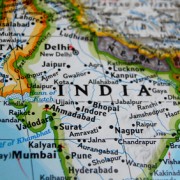Smartphones have been getting more affordable – thanks to the rise of Google’s Android platform, increasing competition in the space and decreasing component costs. But the price of devices is still a barrier to getting the next wave of mobile users using the mobile Internet. At a keynote session on connecting the “next billions”, taking place at the Mobile World Congress trade show in Barcelona today, Manoj Kohli, CEO of carrier Bharti Airtel – which operates in India and Africa — said the price of smartphones needs to come down to $30, and mobile data dongles to $10, to break down the affordability barrier.
“Smartphones at $30 are very important,” he said – echoing comments made late last year by Wikipedia founder Jimmy Wales, who talked up the disruptive potential of $50 smartphones that are already selling in Africa.
“If you go and you take a look at the numbers [of smartphone adoption in Africa]… the upward trend — obviously it’s still a very small penetration – but that upward trend is there really strongly. If you look at the total bandwidth into Nigeria, for example, it’s skyrocketing,” said Wales in December.
Nokia’s CEO Stephen Elop, who was also speaking at the session today, argued that it’s not just the cost of the device that’s important – but the total cost of ownership, including factors such as network costs and electricity. The company’s strategy for emerging markets has been to beef up its feature phones, in its Asha line and other Series 40 handsets – such as the Nokia 301 which launched yesterday. That device retails for around $85, while Nokia’s cheapest Windows Phone smartphone retails for around $185.
“The type of experience and what people are doing at the highest end smartphones they don’t optimize for certain things [like data consumption],” said Elop. One of the specific features Nokia has developed with “network and affordability constraints” in mind is its cloud-based Xpress browser which compresses web pages before delivering them to help reduce data consumption.
Elop said more than 70 million people are now using the browser globally on a “regular basis” – three times more than were doing it a year ago. “The Xpress browser is saving data consumers about a million dollars a day,” he added.
At last year’s MWC, during his keynote speech Google chairman Eric Schmidt said some of its Android hardware partners were working on building $70 smartphones — adding that 2013 would be the year the cost of smartphones falls to the level of feature phones. Asked if Android would be made available on feature phones, he said then: “A better question is ‘when will smartphones cost what feature phones cost’ and the answer is: next year.”

